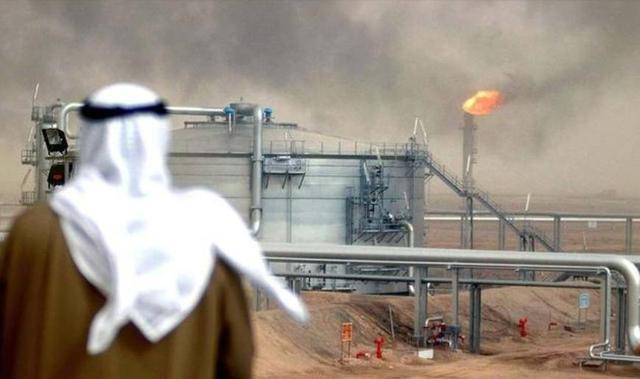
The ongoing turmoil in the Middle East has once again focused global markets' attention on the sensitive issue of oil supply. As the volatility of international oil prices intensifies, it not only causes the market to be deeply worried about energy security, but also poses new challenges to the fragile process of global economic recovery. In this context, although the eurozone has entered a cycle of interest rate cuts, trying to stimulate economic growth with loose monetary policy, the potential risk of rising oil prices is like a sword of Damocles hanging over the head, which may undermine the existing framework of economic stability at any time.
The Middle East, the heart of global oil production, has a ripple effect on global energy markets. Concerns about possible Israeli military action against Iranian oil facilities recently sent London Brent crude futures soaring above the psychologically important $80 a barrel level. This change not only reflects the market's extreme unease about the situation in the Middle East, but also highlights the deep dependence of the global energy system on Middle Eastern oil.
As an important member of Opec, Iran's oil production and exports have a decisive impact on the global market. And the Strait of Hormuz as a link between the Middle East oil production area and the global consumer market, its security situation is affecting the nerve of the world. Once this channel is blocked due to conflict, the major oil importers in Eurasia will have to face the severe challenge of energy supply cuts, and global oil prices are bound to rise further, which will have a profound impact on the global economy.
For Europe at a critical stage of economic recovery, the turmoil in the Middle East is undoubtedly a powerful medicine. While euro zone inflation has fallen back to the European Central Bank's 2 percent target and the central bank has embarked on a cycle of rate cuts to support growth, the threat of higher oil prices hangs over Europe's economy like a cloud. If oil prices continue to rise, eurozone inflation could rebound, undermining the effectiveness of the ECB's policy of cutting interest rates and possibly forcing the central bank to make a difficult choice between controlling inflation and stimulating growth.
The fragility of Europe's economic recovery was laid bare at this moment. Although the eurozone GDP achieved quarter-on-quarter growth in the second quarter, the growth momentum is obviously insufficient, and the road to recovery is still long and full of challenges. The European Central Bank President Christine Lagarde frankly revealed the deep concern about the current economic situation. Against this backdrop, any deterioration in the Middle East could be the final straw for Europe's economic recovery.
The turmoil in the Middle East is not only a test for the European economy, but also a severe challenge to the process of global economic recovery. The global economy has become less dependent on Middle Eastern oil, but supply disruptions are still severe enough to trigger wild swings in energy markets that could send inflation soaring, sending shockwaves through the global economy.
Analysts say a prolonged rise in energy prices would seriously undermine major central banks' efforts to curb high inflation. To counter inflationary pressures, central banks may have to reconsider raising interest rates, which would hit consumer spending and business investment hard, hampering the global economic recovery. In addition, higher oil prices could exacerbate geopolitical tensions and trigger more protectionist trade measures, further weakening the growth momentum of the global economy.
Faced with the uncertainty of the situation in the Middle East and the volatility of the global energy market, governments and enterprises should speed up the adjustment and optimization of the energy structure and promote the diversification and security of energy supply. This includes increasing investment in renewable energy, improving energy efficiency, and strengthening energy cooperation with non-Middle East oil producers.
At the same time, the international community should strengthen cooperation to jointly maintain peace and stability in the Middle East and create favorable conditions for the smooth operation of the global energy market. After all, only in a peaceful and stable environment can the global economy achieve sustainable recovery and development.
The ongoing turmoil in the Middle East is not only a test for global energy security, but also a severe challenge to the process of global economic recovery. In this war without smoke of war, governments and enterprises of all countries should keep a clear head and firm determination and actively respond to various risks and challenges. Only in this way can we steer the tide of the global economy and jointly create a more prosperous, stable and sustainable future.

報告顯示,中國電力投資加速增長,預計2024年電網基建投資將超過5300億元。
近日,市場迎來了一則引人注目的消息:工業巨頭3M公司(MMM.N)在本周五公布了其季度業績報告,隨後股價飆升至近兩年來的
最近,外媒給OpenAI算了筆賬,今年可能要血虧50億美元。
近日,巴黎奧運會和世界鐵人三項協會聯合發布了一項重大決定,宣布因塞納河水質污染問題,原定於近期進行的奧運會鐵人三項首次下
當地時間7月18日,法國巴黎發生了一起令人震驚的持刀襲警事件。
近期,一則重大消息在國際舞臺上引起軒然大波,馬來西亞宣布加入金磚國家。
調查發現,互聯網和智能手機的使用幹擾了韓國近五分之一學生的生活。